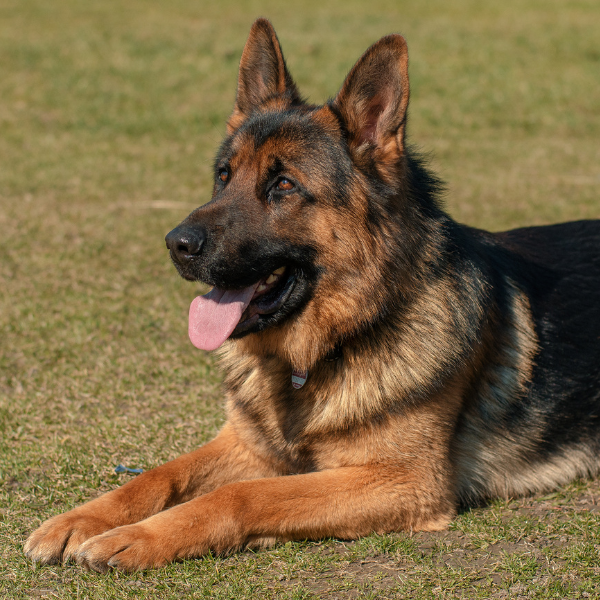Understanding Osteoarthritis
Osteoarthritis (OA), also known as degenerative joint disease, is a common PAINFUL condition in dogs and cats characterized by the gradual breakdown of cartilage in the joints. This leads to pain, stiffness, and decreased mobility.
What Causes Osteoarthritis (OA)?
- Age: Older dogs are more likely to develop OA.
- Genetics: Certain breeds are predisposed to OA
- Injury: Previous joint injuries or fractures can lead to OA.
- Obesity: Excess weight puts extra stress on joints.
- Joint Congenital Issues: Conditions such as hip dysplasia or elbow dysplasia.
What Does Pain from OA Look Like in My Pet?
- Limping or lameness: Particularly after exercise.
- Difficulty rising or jumping: Struggles to get up, climb stairs, or jump.
- Decreased activity: Reluctance to walk or play.
- Stiffness: Noticeable stiffness, especially after rest.
- Behavioral Changes: Increased irritability or aggression due to discomfort.

Diagnosis:
- Physical Examination: Assessing joint pain, swelling, and range of motion.
- X-rays: To visualize joint changes and confirm the diagnosis.
- Blood Tests: To rule out other conditions that may cause similar symptoms.
How Do We Treat OA?
The treatment of osteoarthritis requires a multimodal approach. Your veterinarian may use a combination of the following treatments to help your pet feel their best:
Medication:
- Pain Relievers: Non-steroidal anti-inflammatory drugs (NSAIDs) can reduce pain and inflammation
- Disease-Modifying Osteoarthritis Drugs (Adequan)): Help to slow the progression of the disease and protect cartilage, dogs and horses only
- Monoclonal Antibodies (Librella/Solensia): Alter pain pathways to decrease discomfort due to osteoarthritis
Weight Management:
- Diet: A balanced diet to maintain a healthy weight.
- Exercise: Regular, low-impact exercise to keep joints flexible without causing stress.
Joint Supplements:
- Glucosamine, Chondroitin, and Omega 3 Fatty Acids: These supplements can support joint health and reduce clinical signs by lubricating and protecting the joint. (Ex: Purina ProPlan Joint Care, Dasuquin Advanced)
Physical Therapy:
- Rehabilitation Exercises: To improve joint function and strength.
- Hydrotherapy: Swimming or water treadmill exercises can be beneficial.
Alternative Therapies:
- Laser Therapy: Helps to decrease pain and inflammation.
Surgical Options (for severe cases):
- Arthroscopy: Minimally invasive surgery to clean out damaged tissue.
- Joint Replacement: In severe cases, surgery to replace the affected joint.
When to Contact Your Vet
If you notice any of the following, contact your vet immediately:
- Sudden worsening of symptoms.
- Severe pain or inability to move.
- Changes in appetite or behavior.
Managing osteoarthritis in dogs involves a combination of treatments and lifestyle adjustments. With proper care and attention, many dogs with OA can lead happy, active lives. Regular veterinary check-ups are crucial to tailor the treatment plan to your dog’s specific needs.
For more information or to discuss your dog’s condition, please consult your veterinarian.
Location
520 Jungermann Rd.
St. Peters, MO 63376
Contact Info
636-447-3727
wecare@spencercreekvet.com
Open Hours
Sat: 8am - 1pm
Sun: Closed
Get in touch!
Our team is here to help! Complete the form below to get in touch. If you're in need of immediate assistance, please contact us at 636-447-3727.
Ready to come see us?
Request your next appointment online in minutes from any device. We look forward to seeing you soon!
